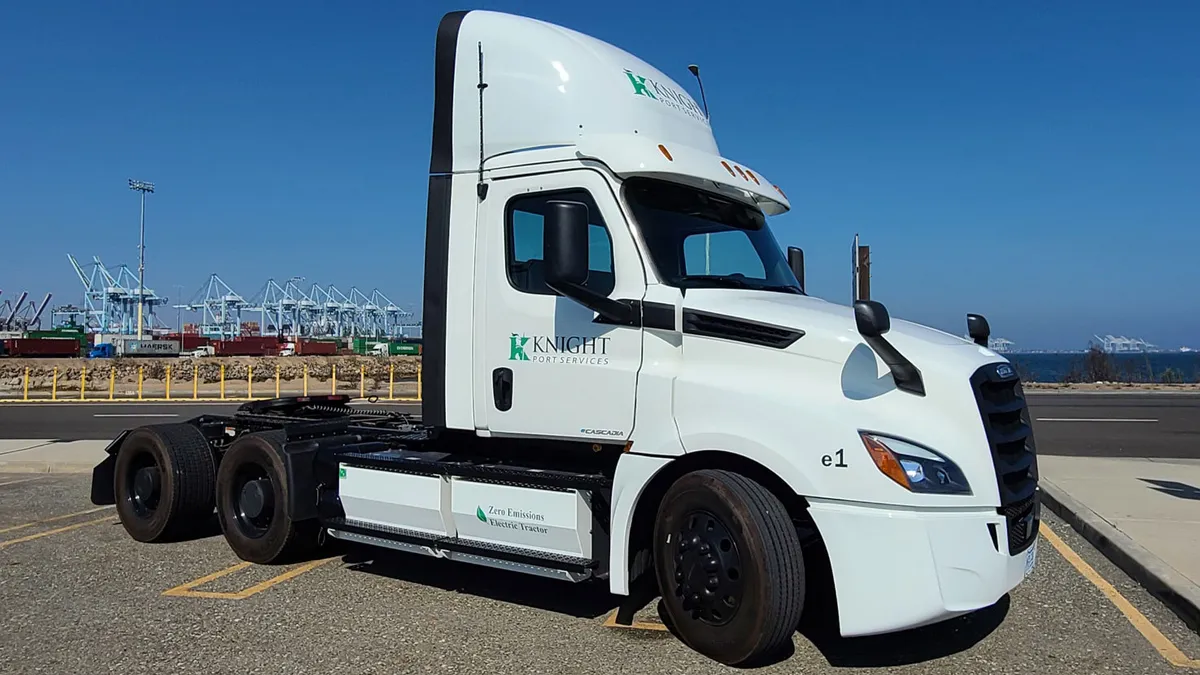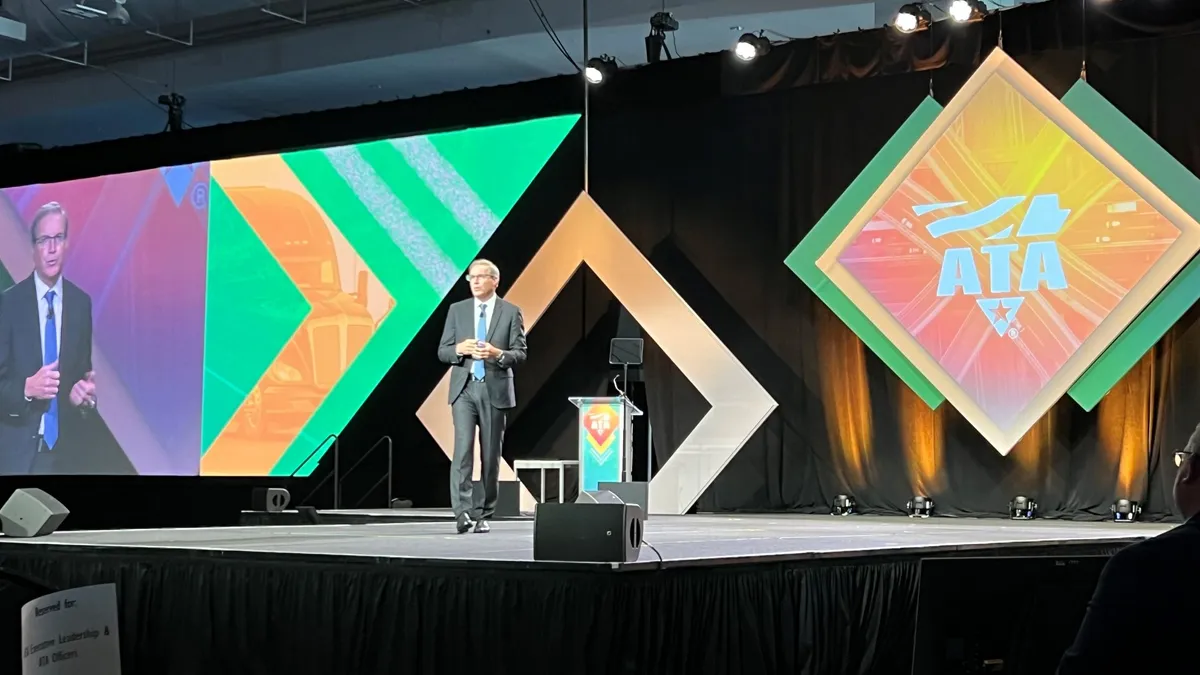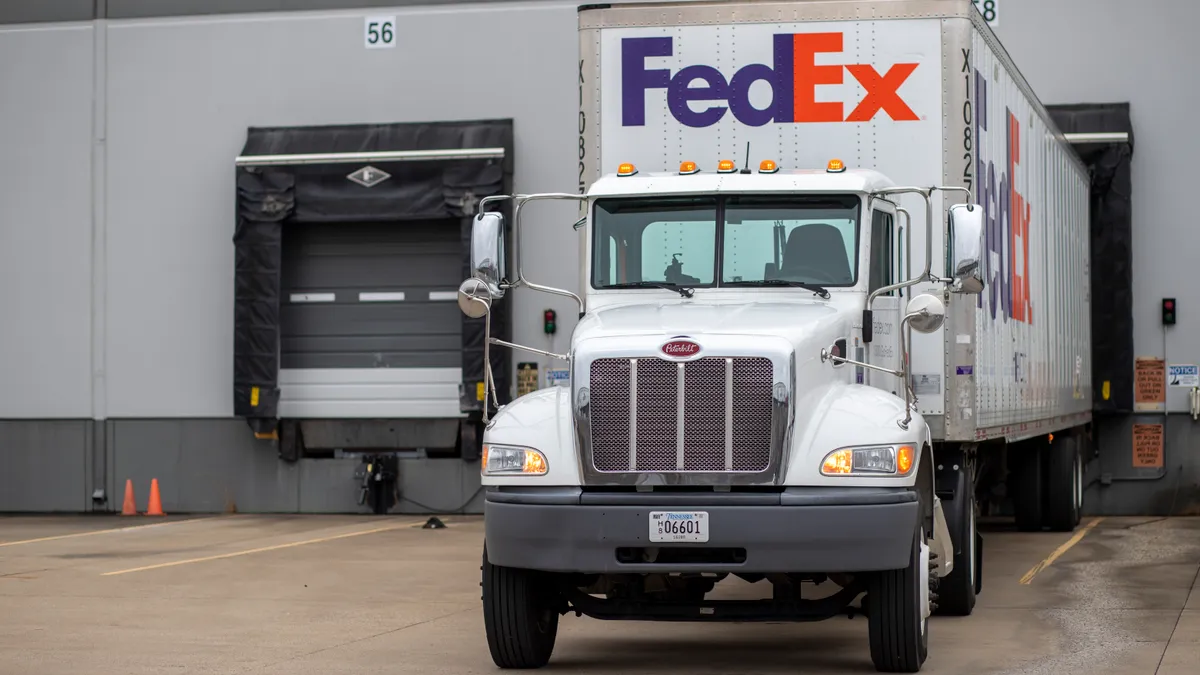Dive Brief:
- Knight-Swift plans to reduce its carbon emissions by half by 2035, according to a company news release Tuesday.
- Knight-Swift's plan includes adding zero-emission tractors — battery-electric and hydrogen fuel-cell vehicles — to the fleet, making tractors and trailers more aerodynamic, using technologies to reduce idling, using clean-diesel engines, and adding more technologies to reduce emissions as they come onto the market.
- Daimler Trucks will help Knight-Swift kick off this plan when the carrier deploys its first zero-emissions tractor, a battery-electric day cab. The tractor, a Freightliner eCascadia, is equipped with a fully electric drivetrain and will be used by Knight-Swift to service the Los Angeles area, according to the carrier.
Dive Insight:
The announcement is the latest sign that pressure from states, especially California, is having an influence on carriers. The California Air Resources Board passed its Advanced Clean Trucks regulation in June, introducing mandates for zero-emissions truck sales. But keeping up with the neighbors could be another factor. Carriers seem to be competing with each other on deployment of electric trucks.
Multiple companies made sustainability-related announcements in September. Walmart Canada tripled its order of Tesla trucks to 130 units as the global retailer announced it aims to have all its trucks be zero-emission by 2040, and Lion Electric began delivery of 10 Class 6 electric trucks to Amazon, according to Morgan Stanley.
In August, J.B. Hunt Transport set a goal by 2035 to convert at least 25% of its day cab and straight truck fleet to run on alternative fuel. The company is researching electric, hydrogen, natural gas and other systems.
Knight-Swift will face uncertainties as it adjusts its fleet but expects cost-savings will materialize, said Dave Williams, the company's senior vice president for equipment and government relations.
"While we will likely have to take some risk, we believe that being environmentally responsible and being profitable are not mutually exclusive," Williams said in the news release. "We expect these technologies to reduce emissions and to be cost-effective."
Brian Alexander, Lion Electric spokesperson, said the movement toward electric is accelerating for two reasons: One, carriers are seeing their competitors go green with battery-electric and fuel-cell electric trucks. Moving soon not only keeps carriers up to date with their competitors but honors emission promises carriers may have made in the past, Alexander said.
And two, there is better production and availability of commercial electric vehicles.
"There's a larger acceptance of electric, and this realization it does in fact work," said Alexander. "These are not prototypes. These are hitting the road now."












